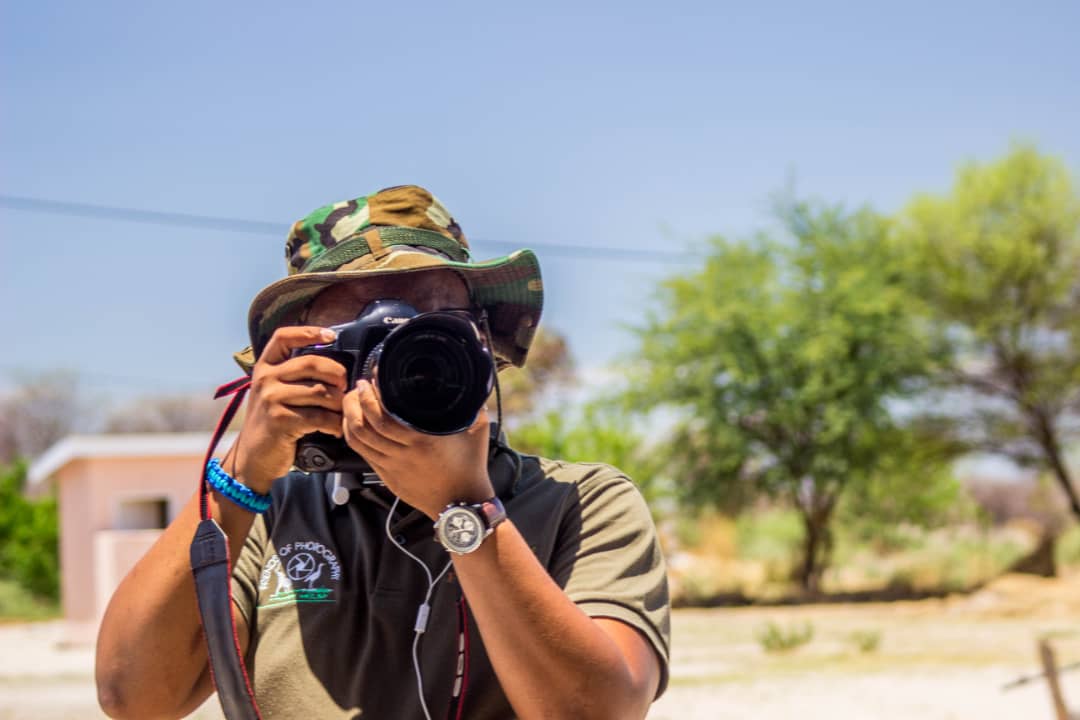Children learn to love nature through photography in Botswana
Wildlife will be seen only as a problem if youngsters can’t visit wild areas to see animals up close

Your support helps us to tell the story
From reproductive rights to climate change to Big Tech, The Independent is on the ground when the story is developing. Whether it's investigating the financials of Elon Musk's pro-Trump PAC or producing our latest documentary, 'The A Word', which shines a light on the American women fighting for reproductive rights, we know how important it is to parse out the facts from the messaging.
At such a critical moment in US history, we need reporters on the ground. Your donation allows us to keep sending journalists to speak to both sides of the story.
The Independent is trusted by Americans across the entire political spectrum. And unlike many other quality news outlets, we choose not to lock Americans out of our reporting and analysis with paywalls. We believe quality journalism should be available to everyone, paid for by those who can afford it.
Your support makes all the difference.By Solomon Tjinyeka for INK 24
Renowned Botswana wildlife photographer, Edwin Morolong, has embarked on a new journey to teach rural children and out-of-school youth living close to wildlife areas about photography and environmental issues.
In an interview with INK24, Morolong explained that he registered with the Friends of Photography Conservation Society in October 2021. The society aims to bring awareness and provide opportunities for local children and youth to learn and become conservationists so that they can help protect their local environment.
“We will be contributing to bringing up a generation of young people that can positively impact their environment and become conservationists and wildlife ambassadors,” he stated.
Morolong is the President and Founder of the society. He stressed that almost all settlements close to wildlife areas and game reserves face multiple social, economic and environmental problems.
Unfortunately, high unemployment rates and poor performance at the end of their secondary education have become huge burdens for local children and youth leading to increase in poaching and widespread poverty.
Morolong, a teacher by profession, runs a photography company called Pero Photography in Maun in northern Botswana. He observed that there are few opportunities for children and youth to learn about wildlife and conservation which do not form part of school curriculum.
“This gap in knowledge has led to lack of interest in protecting natural habitats, compounded by negative views of nature due to human wildlife conflict,'' he stated, adding that consequently, instead of understanding its benefit, children in these communities believe that wildlife is a problem.
Furthermore, he noted that most local children have never been in neighbouring parks or game reserves just to enjoy the beauty of these natural habitats. Currently, they have enrolled 24 children from Tsau and Maun village and have requested teachers to help identify more students to join the initiative.
“Our group is made up mostly of those kids who are not academically gifted. This is done to create a platform for these kids to excel beyond the classroom,” he stated, adding that they then moved out of schools into the community to register children interested in learning photography for conservation.
He noted that they believe that in order to stop this vicious cycle it is key to empower local communities, and most importantly, to educate the younger generations with knowledge, skills and a fascination to build a brighter future for themselves and Botswana.
“Our program emphasises teaching children outdoors about their environment using photography and general environmental education,” he said.
Morolong said they are making impactful changes from the ground up, by developing a passion for wildlife and its protection in the young people through photography and storytelling, thereby placing decision making about conservation in the hands of informed and motivated Botswana youth.
This article is reproduced here as part of the African Conservation Journalism Programme, funded in Angola, Botswana, Mozambique, and Zimbabwe by USAID’s VukaNow: Activity. Implemented by the international conservation organisation Space for Giants, it aims to expand the reach of conservation and environmental journalism in Africa, and bring more African voices into the international conservation debate. Read the original story here.
Join our commenting forum
Join thought-provoking conversations, follow other Independent readers and see their replies
Comments